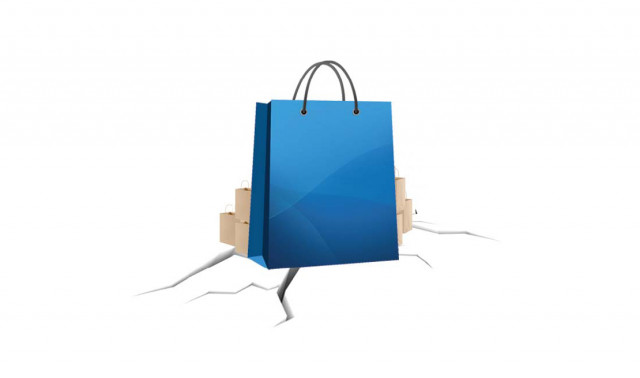The changing face of retail
The retail sector is about to undergo a dramatic facelift as consumers become discerning and demand greater choice.

The advent of hypermarkets and wholesalers such as Carrefour, Metro Cash & Carry and Makro has given Pakistanis a taste for a consumer choice driven shopping experience which is likely to deepen the market for consumer goods throughout the country and alleviate what has hitherto been the central problem in developing that sector: logistics.
A fragmented market
According to the Small & Medium Enterprise Development Authority, there are over 125,000 retail outlets all across Pakistan. Approximately 94 per cent of these are miniscule corner shops and small retail outlets in cities and villages. Perhaps most critically, there is no nationwide chain of retail or even wholesale outlets.
This poses a significant challenge for most businesses looking to enter the food and agribusiness sector. Despite the fact that Pakistanis spend close to $36 billion a year on food and other retail shopping, businesses find it very difficult to reach the mass market of Pakistani consumers simply because it is not a single marketplace but tens of thousands of little shops.
Urban areas form a somewhat more concentrated market. Some 30,000 stores serve close to 55 per cent of the population. Yet even this market does not have a single chain of retail outlets that has its own integrated supply chain. This fragmentation of the market has a very real impact on the profitability of food and consumer goods producers.
Logistical costs
Logistics is an exceedingly important cost component that eats away at the margins of most producers of retail consumer items. Take, for instance, Unilever, one of the largest consumer goods company in both Pakistan and the world. Logistics costs constitute close to 19 per cent of their revenues, which depresses the profitability of a machine.
This distribution does not capture the fact that revenues themselves are depressed owing to the margins that the manufacturers have to give to hundreds of distributors throughout the country. While distributors are common in even developed markets, they work on thinner margins than Pakistani distributors. And the presence of large retail chains means that often producers can sell directly to retailers and wholesalers, which reduces overall distribution costs.
These high costs also mean that businesses that seek to invest in processed food and consumer goods manufacturing are dissuaded from doing so, despite the existence of a very large population, a significant portion of which has disposable income. According to a study conducted by Standard Chartered Bank in 2007, close to 30 million Pakistanis live in households with an annual income of $10,000.
Big is beautiful
So, contrary to common perception, Pakistan does have a large middle class. While it is not growing at the breakneck speeds as the Chinese or even the Indian middle class, it is a substantial market, one worth selling to for most food and consumer goods firms. And with the advent of larger retail and wholesale chains, they may well find it more feasible to do so.
Large supermarkets have existed in Pakistan for decades now. Karachi residents are familiar with stores such as Agha’s Supermarket and Naheed’s. Lahore and Islamabad have similar outlets. Yet the advent of large foreign players is the real cause for the beginning of a retail revolution.
Carrefour, the France-based chain that is the second largest retail chain in the world, has been operating a store in Lahore since 2007 and plans to set up 10 more over the next five years. Metro Cash & Carry, a German wholesaler, has set up five stores across the country and plans to continue expanding its presence in Pakistan.
These two foreign firms have given the emerging Pakistani middle class a taste of the cornucopia of choices that is available to consumers in more developed markets. They have inspired a local response. The House of Habib, a local conglomerate with interests in manufacturing and financial services, has launched Makro, a large wholesale chain that also doubles as retail outlets. ARY has launched its own supermarket in Karachi.
What it all means
The existence of these chains means that Pakistanis are about to be inundated with outlets that seek to create a better shopping experience and offer consumers more choice. The larger these chains become, the more those choices they offer will be produced locally.
If food production companies can have lower distribution costs and easier access to a wider swathe of the consumer market, they are more likely to expand existing lines of business and introduce newer markets. In other words, food producers will go from selling raw commodities to selling higher value goods which will not only expand consumer choice but will also increase the productivity of the Pakistani workforce and thus their incomes.
The writer is a financial and management consultant based out of Karachi
Published in The Express Tribune, September 27th, 2010.



















COMMENTS
Comments are moderated and generally will be posted if they are on-topic and not abusive.
For more information, please see our Comments FAQ